Publications

Pakistan: Belgium’s contribution through the Special Fund for Emergency and Rehabilitation Activities (SFERA)
11/2022
The lives and livelihoods of around 3.3 million people in Pakistan, mostly living in rural areas, have been significantly disrupted by this year’s massive monsoon driven floods.
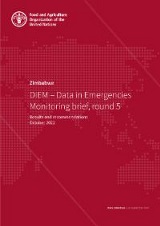
Zimbabwe: DIEM – Data in Emergencies Monitoring brief, round 5
11/2022
This Data in Emergencies Monitoring (DIEM-Monitoring) brief shares the results of a fifth-round assessment conducted in September 2022 in Zimbabwe.

Myanmar: Response overview (October 2022)
11/2022
Humanitarian needs in Myanmar continue to rise sharply since February 2021 as a result of political and economic upheaval and increased conflict.
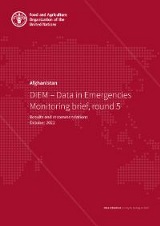
Afghanistan: DIEM – Data in Emergencies Monitoring brief, round 5
11/2022
This Data in Emergencies Monitoring (DIEM-Monitoring) brief shares the results of a fifth-round assessment conducted between July and August 2022 in Afghanistan.
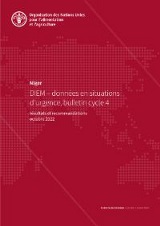
Niger: DIEM – données en situations d’urgence, bulletin cycle 4
10/2022
Ce bulletin sur le suivi des données dans les situations d'urgence (DIEM-suivi) présente les résultats de la quatrième évaluation réalisée en juillet et août 2022 au Niger.
.tmb-th600x450.jpg?Culture=fr&sfvrsn=bfb57cad_6)
South Sudan: DIEM – Data in Emergencies Monitoring brief, round 3
10/2022
This Data in Emergencies Monitoring (DIEM-Monitoring) brief shares the results of a third-round field assessment conducted between May and July 2022 in South Sudan.

Haiti: Response overview
10/2022
In Haiti, sociopolitical unrest, economic decline, violence perpetrated by armed groups, low agricultural production, rising food and fuel prices, and frequent natural disasters have led to increased levels of food insecurity.
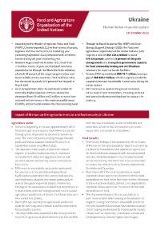
Ukraine: Humanitarian response update, 18 October 2022
10/2022
This document provides an up-to-date summary of the humanitarian situation in Ukraine and the response of the Food and Agriculture Organization of the United Nations (FAO) on the ground.
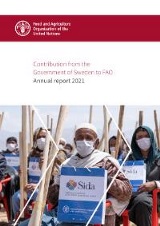
Contribution from the Government of Sweden to FAO: Annual report 2021
10/2022
In 2021, the Government of Sweden, through the Swedish International Development Cooperation Agency (Sida), contributed SEK 94 million (USD 11.08 million) to the Food and Agriculture Organization of the United Nations (FAO) emergency and resilience programme.
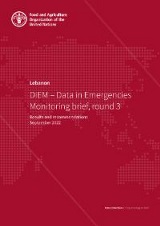
Lebanon: DIEM – Data in Emergencies Monitoring brief, round 3
10/2022
This Data in Emergencies Monitoring (DIEM-Monitoring) brief shares the results of a third-round field assessment conducted between July and August 2022 in Lebanon.
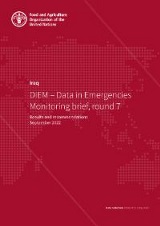
Iraq: DIEM – Data in Emergencies Monitoring brief, round 7
10/2022
This Data in Emergencies Monitoring (DIEM-Monitoring) brief shares the results of a seventh-round field assessment conducted between March and May 2022 in Iraq.
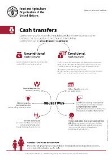
Cash transfers
10/2022
Generic information about FAO's cash transfers (conditional cash transfers and unconditional cash transfers)
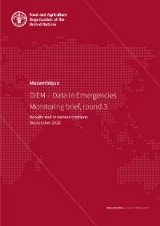
Mozambique: DIEM – Data in Emergencies Monitoring brief, round 3
09/2022
This Data in Emergencies Monitoring (DIEM-Monitoring) brief shares the results of a third-round field assessment conducted between April and May 2022 in Mozambique.
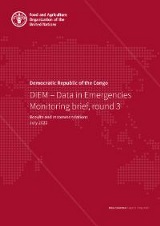
République démocratique du Congo: DIEM – données en situations d’urgence, bulletin cycle 3
09/2022
Ce bulletin sur le suivi des données dans les situations d'urgence (DIEM-suivi) présente les résultats de la troisième évaluation sur le terrain réalisée entre avril et mai 2022 en République démocratique du Congo.
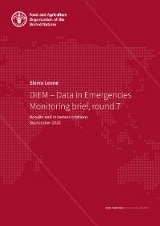
Sierra Leone: DIEM – Data in Emergencies Monitoring brief, round 7
09/2022
This Data in Emergencies Monitoring (DIEM-Monitoring) brief shares the results of a seventh-round field assessment conducted between June and July 2022 in Sierra Leone.
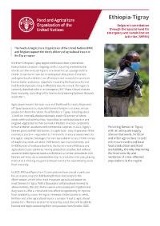
Ethiopia – Tigray: Belgium's contribution through the Special Fund for Emergency and Rehabilitation Activities (SFERA)
09/2022
Through the Special Fund for Emergency and Rehabilitation Activities, the Government of the Kingdom of Belgium is supporting FAO's efforts to ensure the timely provision of fertilizers to meet the input needs of farmers in Tigray, Ethiopia.
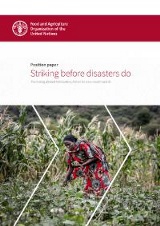
Striking before disasters do – Promoting phased Anticipatory Action for slow-onset hazards
09/2022
Hazards may occur suddenly (sudden-onset) or develop over time (slow-onset) and threaten people’s lives and livelihoods and all the pillars of sustainable development.
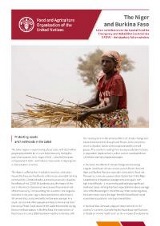
The Niger and Burkina Faso: Sida’s contribution to the Special Fund for Emergency and Rehabilitation Activities (SFERA) – Anticipatory Action window
09/2022
The Sahel region is experiencing a food crisis, with 38.3 million people projected to be in acute food insecurity during this year’s lean season (June–August 2022) – a fourfold increase compared with 2019 – and millions more at risk of slipping into a crisis situation or worse. The effects of climate change in the region are worsening irregular rainfall and climatic shocks such as floods. Both Burkina Faso and the Niger are especially vulnerable to flood risk.
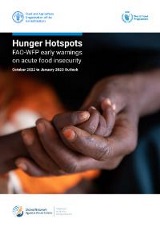
Hunger Hotspots | FAO-WFP early warnings on acute food insecurity: October 2022 to January 2023 Outlook
09/2022
The Food and Agriculture Organization of the United Nations (FAO) and the World Food Programme (WFP) warn that acute food insecurity is likely to deteriorate further in 19 countries or situations – called hunger hotspots – during the outlook period from October 2022 to January 2023.
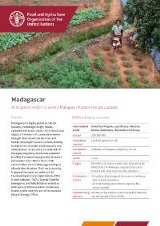
Madagascar: Anticipatory Action to avert a Malagasy migratory locust upsurge
09/2022
Madagascar is highly prone to natural hazards, and in the Grand Sud region, three years of consecutive severe drought have wiped out harvests and hampered people’s access to food.
